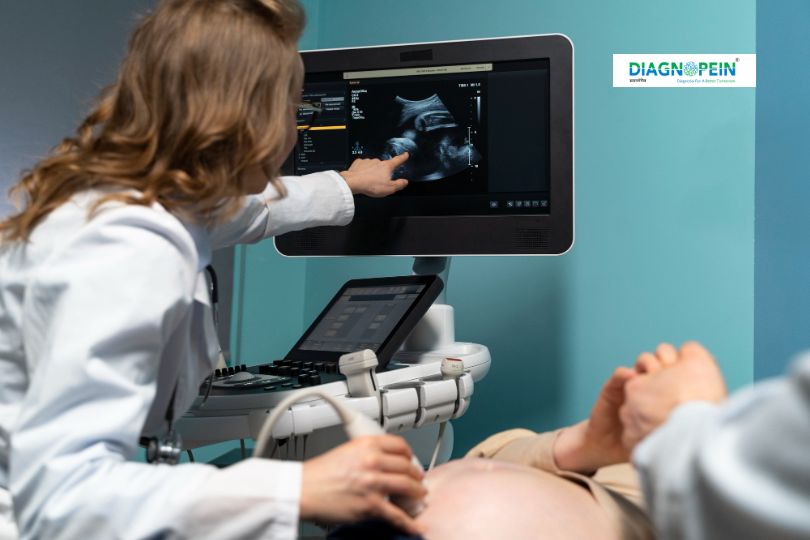Why Echo Doppler is Important
The Echo Doppler test plays a crucial role in cardiac evaluation and monitoring. It provides important insights into how well the heart is pumping blood and how efficiently its valves are working. Early detection of abnormal blood flow patterns can help prevent complications such as heart failure, arrhythmia, or structural damage.
Cardiologists often recommend an Echo Doppler for patients with symptoms like chest pain, palpitations, shortness of breath, or swelling in the legs. The test also helps monitor patients with known heart conditions, post-surgery recovery, or those undergoing treatment for hypertension or diabetes.
By combining structural imaging with Doppler flow measurement, Echo Doppler offers an advanced, comprehensive cardiac assessment — helping doctors make informed treatment decisions.
Benefits of Echo Doppler Test
At Diagnopein, the Echo Doppler test is performed using high-resolution imaging systems to ensure accuracy and comfort.
Key benefits include:
-
Non-invasive, painless, and radiation-free test
-
Detects heart valve and chamber abnormalities
-
Monitors heart muscle function after heart attack or surgery
-
Measures blood velocity and direction for precise diagnosis
-
Helps in managing conditions like hypertension, CHF, and cardiomyopathy
-
Supports preventive cardiac health through early detection
Our skilled sonographers and cardiologists interpret every scan carefully to provide you with precise, actionable reports for further consultation.
How the Echo Doppler Test is Done
- The Echo Doppler test is simple, safe, and takes about 30–45 minutes. You will be asked to lie comfortably on an examination bed. A small amount of gel is applied to your chest to allow sound waves to transmit clearly.
- A handheld device called a transducer is then moved gently over specific areas. This device sends and receives high-frequency sound waves that create moving images of your heart on a monitor. The Doppler feature calculates how fast and in what direction your blood is flowing within the chambers and valves.
- No special preparation is needed, and normal activities can be resumed right after the test. The cardiologist reviews the findings to check for issues such as valve leaks, narrowed arteries, or irregular pumping patterns.









